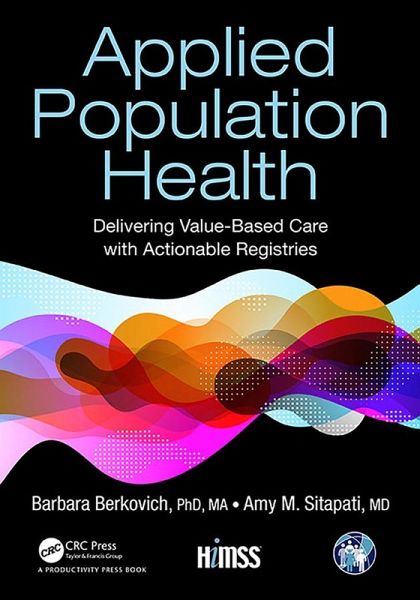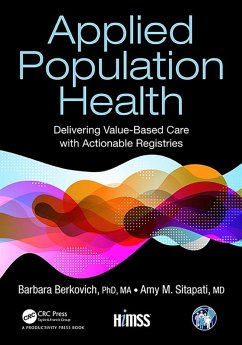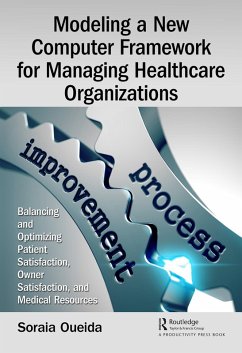
Applied Population Health (eBook, ePUB)
Delivering Value-Based Care with Actionable Registries
Versandkostenfrei!
Sofort per Download lieferbar
58,95 €
inkl. MwSt.
Weitere Ausgaben:

PAYBACK Punkte
29 °P sammeln!
Electronic Health Record (EHR) systems today provide increasing levels of clinical decision support and are the fulcrum for change for value-based healthcare delivery. Billions of dollars of government and insurer payments are dependent on evidence-based workflow design and quality report. In this context, quality measurement is no longer a retrospective exercise, but an essential prospective process embedded in clinical operations. Population health tools in the EHR enhance the efficiency and effectiveness of interventions thus improving the quality of care at lower cost. Population health me...
Electronic Health Record (EHR) systems today provide increasing levels of clinical decision support and are the fulcrum for change for value-based healthcare delivery. Billions of dollars of government and insurer payments are dependent on evidence-based workflow design and quality report. In this context, quality measurement is no longer a retrospective exercise, but an essential prospective process embedded in clinical operations. Population health tools in the EHR enhance the efficiency and effectiveness of interventions thus improving the quality of care at lower cost. Population health methods are effective in ensuring that the right patient receives the right care at the right time.
This book provides a clear framework for design, implementation, and monitoring of innovative population health tools to accelerate measurable improvements in care delivery. Key benefits for readers include conceptual framework, team approach, and technical insights that result in improved patient care, improved performance on quality measures and increased revenue from quality performance incentives and risk-based contracts. This is also a practice guide to the healthcare professionals many roles who are eager to build or improve population health programs with the goal of delivering high quality value-based care.
This book provides a clear framework for design, implementation, and monitoring of innovative population health tools to accelerate measurable improvements in care delivery. Key benefits for readers include conceptual framework, team approach, and technical insights that result in improved patient care, improved performance on quality measures and increased revenue from quality performance incentives and risk-based contracts. This is also a practice guide to the healthcare professionals many roles who are eager to build or improve population health programs with the goal of delivering high quality value-based care.
Dieser Download kann aus rechtlichen Gründen nur mit Rechnungsadresse in A, B, BG, CY, CZ, D, DK, EW, E, FIN, F, GR, HR, H, IRL, I, LT, L, LR, M, NL, PL, P, R, S, SLO, SK ausgeliefert werden.













